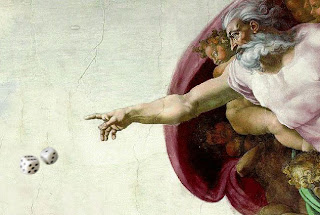Much has been written about quantum mechanics and how difficult—if not impossible—it is to grasp its true meaning. Niels Bohr, the Danish physicist who won a Nobel Prize in 1922 for his contributions to the understanding of quantum mechanics, said “Those who are not shocked when they first come across quantum theory cannot possibly have understood it.” Noted physicist Richard Feynman echoed this sentiment by saying “I think I can safely say that nobody understands quantum mechanics.”
Erwin Schrödinger, famous for his thought experiment where a cat could be simultaneously alive and dead depending on the occurrence of a random quantum event, said this regarding quantum theory: “I do not like it, and I am sorry I ever had anything to do with it.” Considering that he won a Nobel prize in 1933 for his famed Schrödinger equation which is central to quantum mechanics, one would hope he was joking! The aspect of quantum mechanics that particularly bothered Schrödinger is called “quantum leaping”, where an electron instantaneously jumps from point A to point C without ever passing through point B.
Perhaps the biggest critic of quantum theory was Einstein, who jokingly said “Marvelous, what ideas the young people have these days. But I don’t believe a word of it.” Eventually he was convinced that it did indeed have merit, but even then it was his belief that the ability to understand what’s actually happening at the subatomic level exceeds the mental powers of physicists. In a 1926 letter to Max Born, Einstein wrote in reference to quantum theory “I, at any rate, am convinced that God does not throw dice.” In response, Bohr famously said, “Einstein, stop telling God what to do.”
1) True or false: quantum theory is easily understood.
2) ______________ won a Nobel Prize for his quantum theory equation.
a) Albert Einstein b) Niels Bohr c) Richard Feynman d) Irwin
Schrödinger
3) True or false: Einstein was a critic of quantum theory.
4) A mental exercise that would be difficult or impossible to perform is called a(n) _________________.
5) The ability of an electron to instantly jump from one location to another is known as _________________________.
1) True or false: quantum theory is easily understood.
2) ______________ won a Nobel Prize for his quantum theory equation.
a) Albert Einstein b) Niels Bohr c) Richard Feynman d) Irwin
Schrödinger
3) True or false: Einstein was a critic of quantum theory.
4) A mental exercise that would be difficult or impossible to perform is called a(n) _________________.
5) The ability of an electron to instantly jump from one location to another is known as _________________________.
For additional content, musing and discussions follow us on facebook.


No comments:
Post a Comment